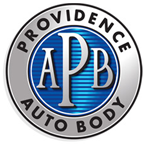You’ve been in an auto accident – Answers to frequently asked questions
Report the accident to your police department Call Providence Auto Body at 401-861-2211 We’ll handle your claim from beginning to end – with no shortcuts
No. As the vehicle owner, you have the legal right to choose the auto body repair facility that repairs your car or truck. Insurance companies initiated approved vendors lists, direct repair facilities and referral lists in order to save the insurance company money on a claim. An insurance company will work with any autobody repair facility that you choose to repair your vehicle.
When your auto is declared a total loss, your insurance company will only pay you the actual cash value of the auto as of the date of the loss, not the cost to replace it. Your auto’s value is determined by the following factors: the retail value for an auto of like kind and quality prior to the accident; whether its in poor condition or has high mileage; the decrease in value of the auto resulting from prior unrelated damage which is detected by the appraiser or for which a claim has been paid.
If your auto has substantial value because of its exceptional condition such as an antique, classic, or restored auto, you should have it appraised and then insure it for the appraised value
There are no specific time limits for the settlement of claims. Insurance companies are required by law to pay all claims in a prompt and reasonable amount of time. However, what constitutes “prompt and reasonable” may vary from claim to claim. Claims that require special or extended investigation may take longer to resolve. Inclement weather conditions often cause an increase in the number of claims filed and that can slow the process down as well.
Your insurance company has the option to take title to your auto when it issues payment on your claim. The insurer is entitled to any salvage value your auto may have. You can, of course, negotiate with your company to purchase your auto for the agreed salvaged value.
Visit our Know your rights section.
Yes, if you have comprehensive insurance you are covered for the full amount of the loss, unless you opted for a $100 deductible for glass breakage. The $300, $500, or $1000 deductible, or whatever you may have selected for comprehensive coverage, does not apply to a glass loss.
Yes. If you or someone on your behalf gives false, deceptive, misleading or incomplete information on any application and if such information increases the insurance company’s risk of loss, your company may then refuse to pay claims under any or all of the Optional Insurance coverage’s of the policy. Such information includes the description and place of garaging of the vehicles to be insured, the names of the operators required to be listed and the answers given for all listed operators.
In the event that you have moved since you filled out your initial application, promptly notify your insurance company and the Registry of Motor Vehicles of your new address.
The insurance company is responsible for paying storage charges until it makes a reasonable offer to settle the claim. However, if the consumer disputes the amount offered and the company revises its offer, this does not necessarily mean that the original offer was unreasonable. Disputes over what is reasonable can be resolved with your company through the process described in your insurance policy. You can also submit a written complaint to the Division of Insurance if you are unable to settle the dispute.
Yes. Your collision and comprehensive insurance coverage’s are transferable to a substitute rented or borrowed private passenger auto that is damaged while it is being operated by you or members of your household with the consent of the owner. There is no coverage under your policy for family friends or significant others. You should be aware that your coverage is available only if you rent or borrow a private passenger auto in the United States or Canada. You should also be aware that your policy does not provide coverage for a borrowed or rented truck. If you are renting a truck, you should check with the rental company regarding the purchase of collision and comprehensive insurance. If you are borrowing a truck, make sure you determine whether or not the owner has purchased collision or comprehensive coverage. If the owner does not have insurance, you may be personally liable for any damage to that truck which is the result of your negligent operation. If the use is for business rather than pleasure, call your agent first. Business use is usually not covered under your personal auto insurance policy.
No. If you are using your insurance coverage, you will be allowed a rental vehicle if you have paid for the rental coverage. However, the insurance company will pay only the amount stated in your policy, i.e. $20/day for a maximum of 30 days. If another party is responsible for your damages, his or her insurance company must pay for a comparable vehicle for the time it takes to repair your vehicle. This does not mean that the company must pay for an identical vehicle; if your vehicle is an SUV your are entitled to an SUV, likewise if your vehicle is classified as a mid-size vehicle you are entitled to a mid-size vehicle.
Please visit our Know your rights section for laws in the state of Rhode Island.
